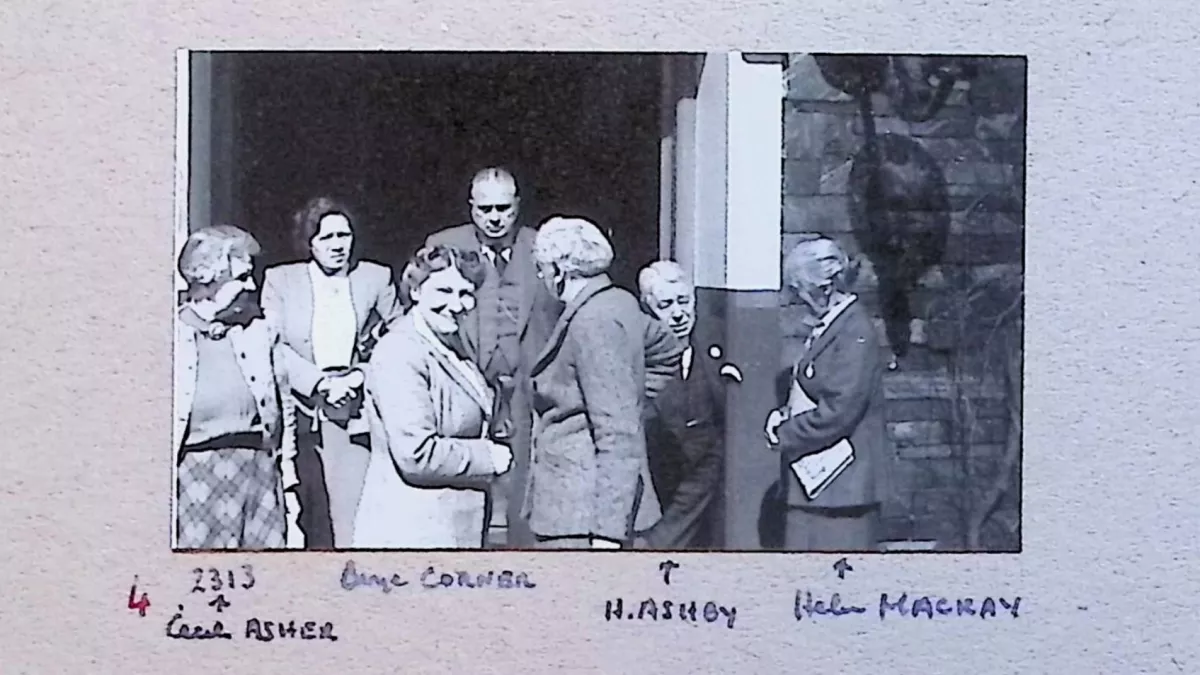
In 1944, members of the British Paediatric Association voted to allow females to become members and in 1945, the first five women were admitted. Beryl Corner was one of these five.
Dr Beryl Corner was born on 9 December 1910 in Bristol as the eldest of three children and won a scholarship to study in London at the London School of Medicine for Women, graduating in 1934 with prizes in five clinical subjects. At the time, women struggled to find positions; there were few female consultants and even fewer female registrars. Many hospitals had official policies of not employing women to certain roles. Like many other women, she faced rejections based solely on her gender.
She took on junior posts in London and attended rounds at Great Ormond Street Hospital and saw first-hand the need for doctors and healthcare professionals who specialised in child health. Infection, poor hygiene, malnutrition and common ailments such as tuberculosis and rickets were rife in hospitals, and she believed many of the ailments she saw were easily treatable and preventable.
Many hospitals had official policies of not employing women to certain roles.
In 1937, she returned to Bristol after being appointed Honorary Physician to outpatients at the Bristol Royal Hospital for Sick Children, the first paediatric post in the south west of England, and later becoming consultant paediatrician in 1942. She went on to set up the special care baby unit at Southmead Hospital in 1946, the first in the UK, which was used as an example for many other units. The unit, though small, reduced the mortality rates for babies by around 50% in its first year.
She continued to strive for improvements and in 1948, she established a breast milk bank and introduced home visits for infants after they were discharged from hospitals to check in on progress. The same year, she gained worldwide attention for delivering the Good Sisters, the first quadruplets to all survive birth by caesarean section.
She was recognised internationally for her work and impact on paediatrics, receiving numerous awards including the Markham Skerritt prize for medical research, the Beaverbrook fellowship for research into rickets at Bristol University, and was awarded an OBE at Buckingham Palace in 2006.
She became a member of the British Paediatric Association in 1945, one of the first five women to become members, and was a founder member of the Neonatal Society. She was elected president of numerous organisations and associations, including the Royal Society of Medicine in 1963, the Bristol branch of the British Medical Association, the Medical Women’s Federation UK and the Medical Women’s International Association in 1978.
She lived and worked in Bristol for most of her life and in 1996, the University of Bristol presented her with an honorary medical degree. However, she also completed many training programmes worldwide in India, Sri Lanka, Malaysia, Thailand and Brunei. She also became an advisor in neonatology to the World Health Organisation and a member of the British Red Cross.
Corner also became the “paediatrician” of Bristol Zoo, where she cared for newborn primates. On one occasion, she even admitted a sick baby monkey into an incubator in a Bristol Hospital to recover next to the human babies.

Outside of medicine, she became a magistrate in 1962 and President of her school, Redland High School for Girls, in 1994. She played the violin and was a founder member of the Southmead Hospital Orchestra, as well as a director of the Bristol Music Club.
She died in Southmead Hospital on 4 March 2007, leaving a great legacy.
Our history and archive
Our website has more information about history of the College. You can also access our online Archive Catalogue, where you can see the records we hold about our past as the British Paediatric Association (BPA) and a Royal College, and of the history of child health.
The Archive team will also be at RCPCH Conference this year - come and see us at our stand in the exhibition hall to learn more about our history and archives.
We also have a small exhibition about the history of the Annual Conference in the Members' Room at the moment, so do have a look next time you visit the RCPCH office in London.
If you would like to access the archives, or you would like more information about our history and archives, please contact us on information.governance@rcpch.ac.uk.









